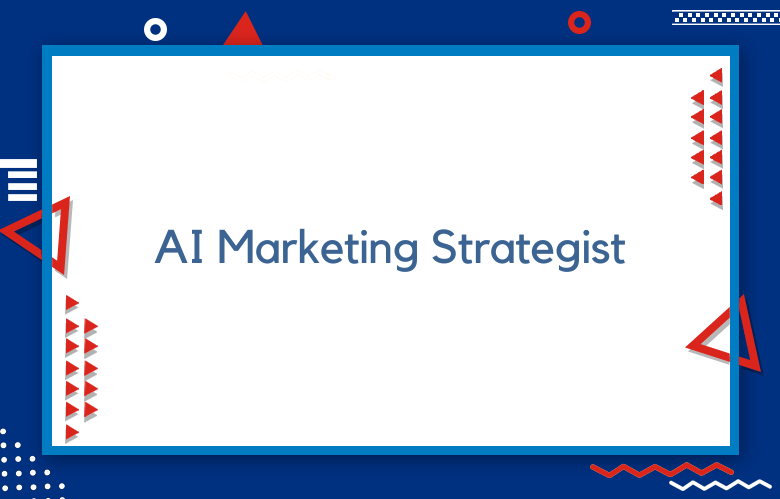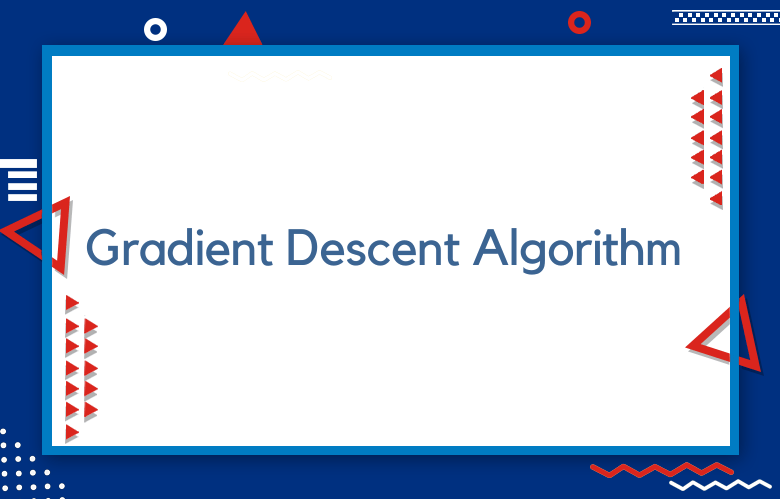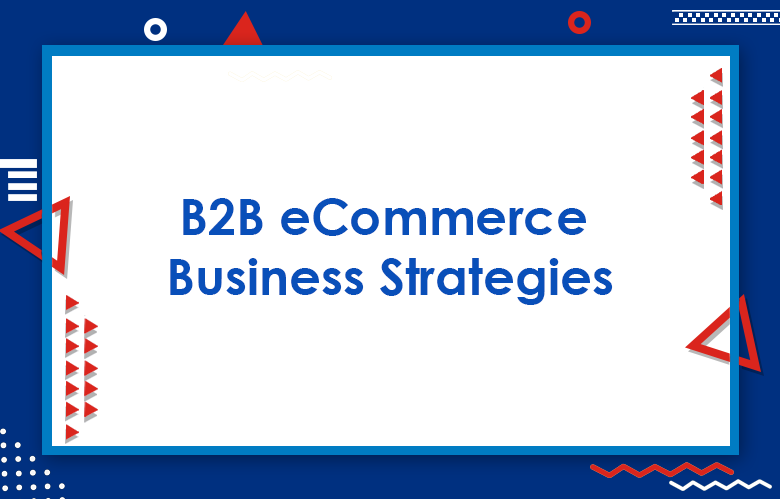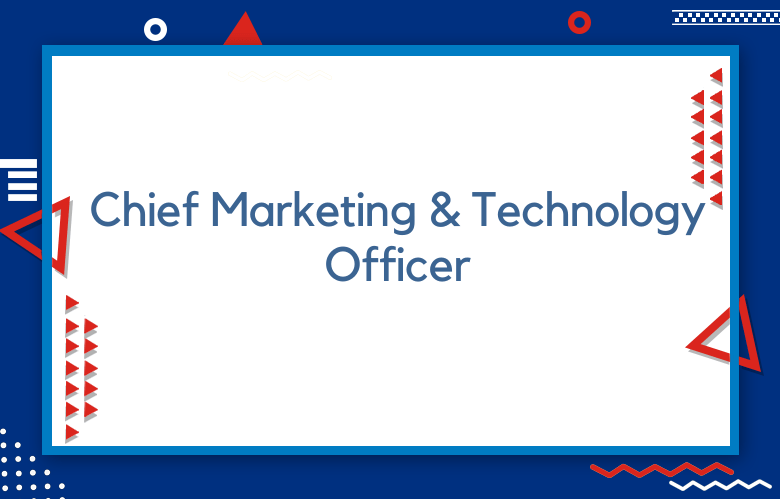Boost Your Marketing with an AI Marketing Strategist

The world of marketing has transformed with the advent of technology and automation. With the rise in competition and the increasing demand for customer-centric marketing, it has become crucial for businesses to employ modern and effective marketing strategies.
One of these strategies is the implementation of an AI marketing strategist. Artificial Intelligence (AI) is known for its ability to analyze data, identify patterns, and make decisions based on that data.
Incorporating AI into marketing activities can boost overall marketing performance and drive business growth. We will explore how an AI marketing strategist can help you improve your marketing efforts and drive revenue.
AI Marketing Strategies: Harnessing the Power of Artificial Intelligence
Artificial intelligence (AI) is transforming the world of marketing. In the past few years, many organizations have implemented AI-driven marketing strategies to understand their target audience better, create personalized experiences, and streamline marketing operations.
Adopting AI in marketing allows companies to gather, analyze, and interpret complex data sets to make more informed decisions and create highly targeted marketing campaigns.
One of the most significant advantages of AI in marketing is its ability to personalize experiences for individual customers. Using AI-driven algorithms, companies can analyze vast amounts of data on customer preferences, behavior, and demographics to create targeted offers and promotions. This, in turn, improves customer engagement and loyalty, leading to increased sales and revenue.
The Role of AI in Marketing: Maximizing Customer Engagement and Sales
The emergence of artificial intelligence (AI) has revolutionized the way marketers engage with their customers and sell their products. With the integration of AI in their marketing strategies, businesses have achieved higher levels of customer engagement and boosted their sales figures significantly.
One of the primary benefits of AI in marketing is its ability to personalize and optimize the customer experience. Using machine learning algorithms, AI technologies such as chatbots and recommendation engines can analyze vast amounts of customer data and provide personalized recommendations and interactions that resonate with each individual’s unique needs and preferences.
Implementing Effective AI Marketing Strategies: A Step-by-Step Guide
The rise of artificial intelligence (AI) has brought about tremendous potential for effective marketing strategies. With AI-powered tools, businesses can gain deeper insights, analyze data at scale, and optimize marketing efforts for increased ROI.
However, some companies may feel overwhelmed by AI’s potential and need help effectively integrating it into their marketing strategy. I will outline a step-by-step guide for implementing effective AI marketing strategies.
Identify your goals: The first step in implementing an effective AI marketing strategy is to identify your marketing goals and the areas where AI can help.
For instance, do you want to improve lead generation, optimize customer targeting, or enhance engagement rates? Whatever your goal is, ensure that it is specific and measurable. This will help you identify AI tools and solutions to achieve your marketing objectives.
Gather data:
Data is the backbone of AI-powered marketing strategies. You must gather ample data from various sources such as social media, website analytics, customer feedback, and sales data.
This data allows AI tools like machine learning algorithms to uncover patterns and insights and improve predictions. Therefore, the more data you can gather, the better the AI system will perform in identifying trends and predicting customer behaviors.
Please choose the right AI tools: Once you’ve defined your marketing goals and gathered ample data, it’s time to select the right AI tools to achieve your objectives.
Numerous AI marketing tools are available in the market, from chatbots, voice search, machine learning algorithms, and predictive analytics. Select those that align with your goals and provide the needed functionalities. Remember to keep your budget in mind; quality solutions are costly.
Train the AI system:
Implementing AI into your marketing strategy requires the initial investment of time, resources, and effort to train the AI system. Some AI tools require a lot of data input before performing optimally, so you must initially invest time and effort to train the system.
For instance, if you deploy an AI-powered chatbot, anticipate frequent conversations with customers to teach the bot to understand natural language and improve its responses.
Monitor and optimize:
AI-enabled marketing strategies require regular monitoring and optimization. The AI system cannot operate effectively if left unattended. It would be best to have a team monitor the AI-powered marketing activities, identify discrepancies and opportunities, and optimize the solutions for better results.
AI-driven solutions require constant learning, just like humans, and regular updates to improve their performance.
Unlocking the Potential of AI in Marketing: Best Practices and Case Studies
Understand AI & Machine Learning
The first step in unlocking the potential of AI in marketing is to understand the basics of AI and machine learning. Artificial Intelligence (AI) is a computer system that can learn from data, identify patterns, and make decisions on its own.
Machine learning is a subset of AI that enables computers to remember data without explicit programming. By understanding these technologies’ fundamentals, marketers can identify how they can be leveraged for their campaigns.
Collect Relevant Data
For AI and machine learning algorithms to be practical, marketers must have access to relevant data. This includes customer demographics, purchase history, website traffic data, and other insights into consumer behavior. Once this data has been collected, it should be organized into structured datasets that AI and machine learning algorithms can use.
Develop Strategies & Goals
Once marketers understand AI and have collected relevant data, they should develop strategies and goals for utilizing these technologies in their campaigns.
This could include developing personalized customer experiences or optimizing ad spend based on customer segmentation models. Marketers should also consider how they will measure success when utilizing these technologies in their campaigns.
Select Appropriate Technologies
Once established strategies and goals, marketers must select appropriate technologies to achieve their desired outcomes. This includes selecting tools such as natural language processing (NLP) systems or predictive analytics platforms to help automate customer segmentation or ad targeting optimization processes.
Test & Refine Models
Once the appropriate technologies have been selected, marketers should test different models to see which ones produce the best campaign results. This could involve testing different NLP algorithms or tuning predictive analytics models with varying parameters until optimal performance is achieved.
Marketers should also continuously monitor the performance of their models over time and refine them if necessary to ensure that they are performing optimally at all times.
Implement & Monitor Results
After testing and refining models, marketers should implement them into their campaigns and monitor the results over time to ensure they achieve their desired outcomes.
This requires monitoring metrics such as customer engagement rates or ad click-through rates to determine whether changes need to be made to optimize performance further. Marketers need to keep track of any changes made to understand better what works best for their campaigns in the long run.
Leverage Insights Gained
As marketers continue to monitor results over time, they should leverage any insights gained from using AI in marketing efforts into future initiatives and other areas of business operations like product development or customer service operations. By leveraging insights gained from using AI in marketing efforts, businesses can earn a competitive advantage by better serving customers’ needs more effectively than competitors who don’t use these technologies.
Stay Up-to-Date on Trends & Best Practices
Marketers must stay up-to-date on AI and machine learning trends and best practices for effectively utilizing these technologies.
As new advancements are made, marketers need to stay ahead of the curve so they don’t fall behind competitors who may already be leveraging new techniques. Staying up-to-date on best practices helps businesses make ethical decisions using these powerful tools.
AI Marketing: The Future of Customer Acquisition and Retention
Automated Personalization
AI-driven marketing will allow businesses to personalize their content and campaigns in a way that was never before possible. AI algorithms can analyze customer data, such as past purchases and browsing history, to create highly targeted campaigns tailored to each customer. This level of personalization can help businesses build stronger relationships with customers and increase their loyalty.
Improved Customer Service
AI-powered chatbots can be used to provide customers with 24/7 support without the need for human agents. Chatbots can quickly and accurately answer simple questions, freeing human agents to focus on more complex issues. Chatbots can learn from customer interactions over time, making them increasingly accurate and efficient at customer service.
Enhanced Segmentation
AI-driven marketing will enable businesses to segment their customers more accurately. Advanced algorithms can analyze vast amounts of customer data to identify patterns and trends that would otherwise be impossible to detect manually. This will allow businesses to effectively target their campaigns, leading to higher conversion rates and increased profits.
Increased Efficiency
AI-powered marketing tools can help businesses automate manual tasks such as data entry, allowing employees to focus on more critical tasks such as strategy development and creative thinking. AI tools can also automate processes such as lead scoring and email list segmentation, significantly reducing the time these tasks take to complete.
Automated Advertising
Powered by AI algorithms, automated advertising platforms such as Google Ads allow businesses to create highly targeted ads that reach the right people at the right time with minimal effort from the business owner or marketer. These platforms use machine learning algorithms to optimize ad campaigns to maximize ROI for each dollar spent on advertising.
Predictive Analytics
AI-driven predictive analytics tools allow businesses to anticipate customer needs before they even arise by analyzing past behavior patterns and predicting future trends in customer behavior based on this data. This helps companies stay one step ahead of their competition by anticipating customer needs before expressing them themselves!
Improved Insights into Customer Behavior
By analyzing vast amounts of customer data using AI algorithms, businesses can gain valuable insights into consumer behavior, which they can then use when developing new products or services or optimizing existing ones to meet the needs of their customers better. This level of insight is invaluable for any business looking to stay ahead of its competition in today’s rapidly changing marketplace!
Optimized Pricing Strategies
Using AI algorithms, businesses can now optimize pricing strategies across different channels to ensure maximum profitability while still meeting the needs of their customers by offering competitive prices across all platforms they operate on (e-commerce sites, brick-and-mortar stores, etc.). By leveraging this technology, businesses can gain a competitive edge over their rivals, who may need to utilize these advanced pricing strategies!
The Benefits of AI Marketing Strategies for Business Growth
Automation
AI marketing strategies can help businesses automate many marketing tasks, such as email campaigns, social media posts, and website analytics. This automation can free up time for marketers to focus on more complex tasks and create more innovative campaigns. AI technology can also be used to analyze customer data and generate insights that can be used to optimize marketing efforts.
Personalization
AI-driven marketing strategies can also help businesses personalize their communications with customers. By leveraging customer data, AI technology can create tailored messages for each customer designed to meet their needs and interests. This level of personalization helps build stronger relationships between brands and customers, leading to increased loyalty and engagement.
Cost Savings
AI-powered marketing strategies can also help businesses save money by reducing the need for manual labor and streamlining processes. For example, AI technology can automate tedious tasks such as segmenting customers into different groups or analyzing customer data for insights. This automation helps businesses save time and money while still ensuring high-quality results.
Increased Reach
AI technology can also help businesses reach a wider audience by making it easier to target specific demographics or geographic areas with tailored messages. AI-driven marketing strategies also make it easier for companies to track their campaigns’ performance in real time, allowing them to adjust their approach if needed to maximize results quickly.
Improved Customer Experience
AI-driven marketing strategies can also improve the overall customer experience by providing personalized recommendations based on past purchases or interactions with the brand. By understanding what customers are looking for, brands can create a more engaging experience that resonates with them more profoundly and leads to increased loyalty over time.
Enhanced Targeting Capabilities
AI technology also provides marketers with enhanced targeting capabilities to reach the right people at the right time with relevant content or offers tailored specifically for them. This type of targeted messaging helps increase engagement levels while reducing costs since marketers can save resources reaching people who aren’t interested in what they have to offer.
Increased Efficiency
By automating mundane tasks such as sorting through customer data or creating reports, AI-driven marketing strategies help increase efficiency across all organizational departments.
This improved efficiency saves time and frees up resources so teams can focus on more critical tasks that require human input or creativity, such as developing new products or services or creating creative ways to engage customers online.
Real-Time Insights
AI-powered marketing strategies provide marketers with real-time insights into how their campaigns are performing so they can quickly adjust their approach if needed to maximize results and ensure success over the long term. With access to these real-time insights, marketers can make more informed decisions about allocating resources to maximize returns from each campaign they launch.
Leveraging AI Technology to Optimize Marketing Campaigns
With the increasing market competition, businesses are constantly looking for ways to optimize their marketing strategies to gain a competitive edge. One of the most promising technologies to emerge in recent years for marketing optimization is artificial intelligence (AI). AI has revolutionized the way companies approach their marketing campaigns.
AI technology allows businesses to capture, analyze, and interpret enormous amounts of data in real time. This data can provide valuable insights into consumer behavior, preferences, and trends, enabling companies to target their advertising better.
For example, AI-powered analytics can assist businesses in identifying the most effective time of day to launch a marketing campaign, the most popular channels for communication, and preferred types of content.
Overcoming Challenges and Obstacles in AI Marketing Adoption
Develop a Clear Strategy
Once the potential benefits of AI marketing adoption have been identified, businesses need to develop a clear strategy for using this technology.
This should involve identifying which areas of their business are most suitable for using AI and developing a plan for implementing the technology in these areas. It is also essential to ensure that any data collected is securely stored and handled under relevant privacy regulations.
Identify Potential Challenges & Obstacles
When planning an AI marketing strategy, it is essential to identify any potential challenges or obstacles that may arise during implementation. These could include technical issues such as compatibility with existing systems or infrastructure, legal issues such as compliance with privacy regulations, or financial matters such as budget constraints.
By anticipating these issues in advance, businesses can be better prepared to address them if they arise during implementation.
Research & Test Solutions Before Implementation
Businesses should research and test available solutions before implementing an AI marketing strategy.
This will help ensure that the chosen solution meets the company’s requirements and can deliver on its promises before making any investments. Testing solutions before implementation can help identify potential problems before they become significant.
Invest in Training & Education
To ensure the successful adoption of an AI marketing strategy, businesses should invest in training and education for their staff members who will manage it daily. This training should cover topics such as using the technology effectively, correctly interpreting data, and utilizing insights gained from customer data analysis.
By investing in training upfront, businesses can ensure that their staff members have all the knowledge they need to make informed decisions about their AI marketing strategies.
Enhancing Customer Relationships with AI-Powered Marketing Solutions
Automated Customer Service
AI-powered marketing solutions can help businesses automate customer service processes, allowing them to provide faster and more efficient customer service.
AI-powered chatbots can be used to answer common customer questions quickly and accurately, while automated email campaigns can be used to deliver personalized messages to customers promptly. Businesses can ensure customers receive the best possible experience by automating customer service processes.
Targeted Advertising
AI-powered marketing solutions can also target potential customers with relevant advertisements based on their interests and preferences.
By using AI-based algorithms, businesses can identify which types of ads will be most effective for a particular audience and then tailor their campaigns accordingly. This allows companies to ensure their ads reach the right people at the right time, maximizing their effectiveness.
Personalized Content
Another benefit of AI-powered marketing solutions is that they allow businesses to create personalized content for their customers. Companies can use AI-driven algorithms to analyze customer data, such as past purchases and browsing habits, to create content tailored specifically for each customer.
This helps businesses build stronger relationships with their customers by providing them with content that is relevant and engaging.
Improved Analytics
AI-powered marketing solutions also offer improved analytics capabilities compared to traditional analysis methods. By leveraging powerful AI algorithms, businesses can gain insights into customer behavior in real time, allowing them to adjust their strategies quickly and effectively to maximize ROI.
These systems provide detailed reports on the performance of various campaigns so businesses can identify areas where improvement is needed to achieve better results.
Automated Lead Generation
AI-powered marketing solutions also enable businesses to automate lead generation processes by targeting potential leads based on specific criteria such as age, location, interests, etc… This allows enterprises to streamline lead qualification processes and increase conversion rates by ensuring that they are targeting the right people at the right time with the right message.
Enhanced Segmentation
AI-driven segmentation tools allow marketers to segment audiences more effectively than ever by leveraging powerful machine-learning algorithms that analyze large amounts of data to identify critical patterns and trends within a given population or demographic group.
This enables marketers to target specific segments more accurately than ever, increasing engagement and higher ROI for campaigns overall.
AI Marketing: Setting Key Performance Indicators for Success
In today’s digital age, artificial intelligence (AI) has become an integral part of marketing strategies for businesses of all sizes. With its ability to analyze customer data, personalize messaging, and optimize campaigns in real-time, AI can revolutionize how companies approach customer engagement and drive revenue growth.
However, to fully realize the benefits of AI in marketing, businesses must establish Key Performance Indicators (KPIs) that align with their overall marketing strategy and business objectives.
KPIs are essential metrics that represent the success of any marketing campaign and help businesses track their progress toward their goals. In AI marketing, KPIs determine the effectiveness of AI-powered activities such as predictive modeling, automated messaging, and dynamic pricing.
Conclusion:
AI-powered marketing tools can significantly boost your overall marketing performance and drive revenue growth.
By collecting and analyzing data, delivering targeted personalization, automating marketing processes, delivering predictive analytics, and enabling better decision-making, an AI marketing strategist can help businesses stay ahead of the competition and capitalize on new opportunities.
Companies must embrace technology to stay relevant and thrive in today’s world, where fierce competition and customer expectations are high. By implementing an AI marketing strategist, companies can take their marketing to the next level and deliver more personalized and effective campaigns.
Call: +91 9848321284
Email: [email protected]



